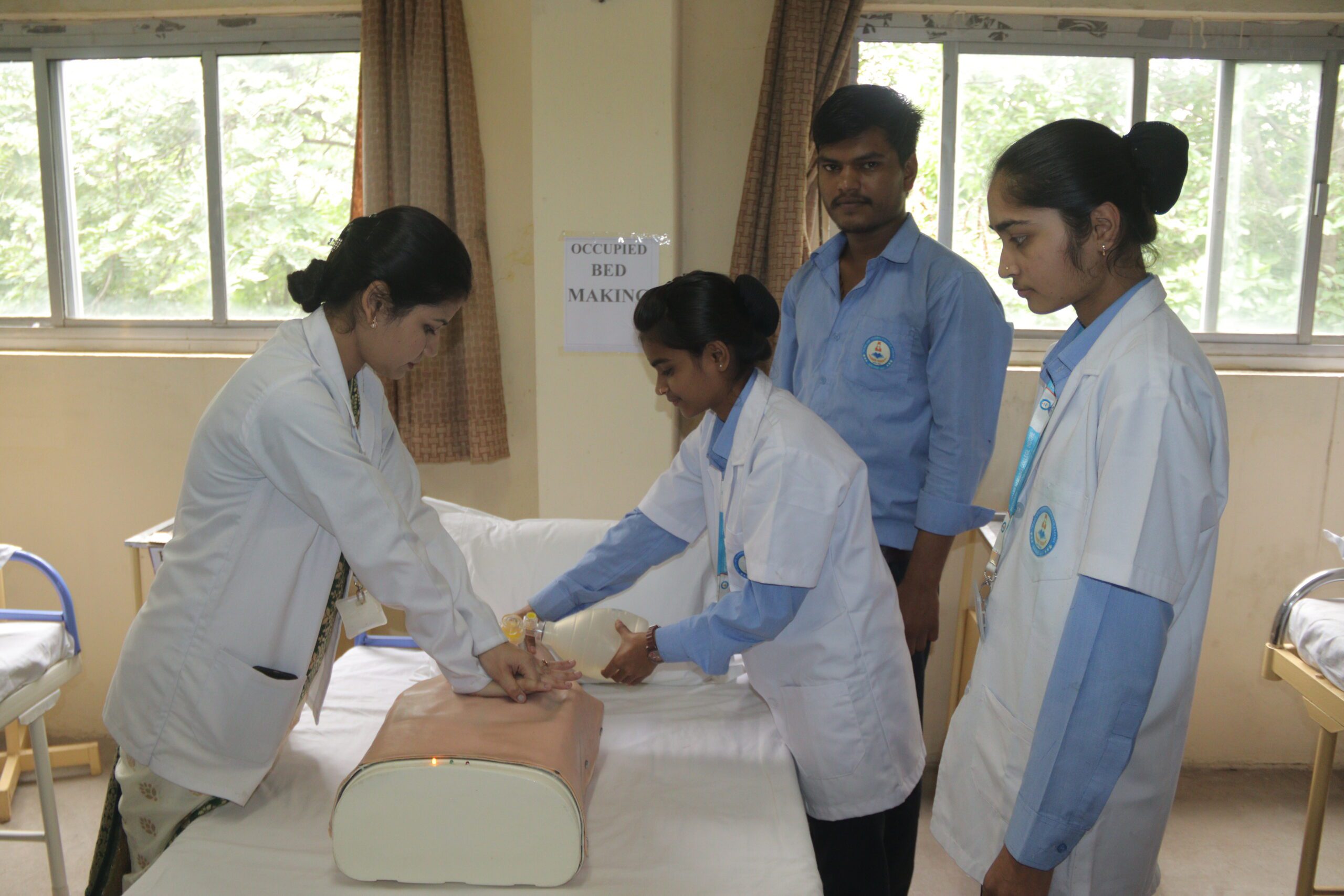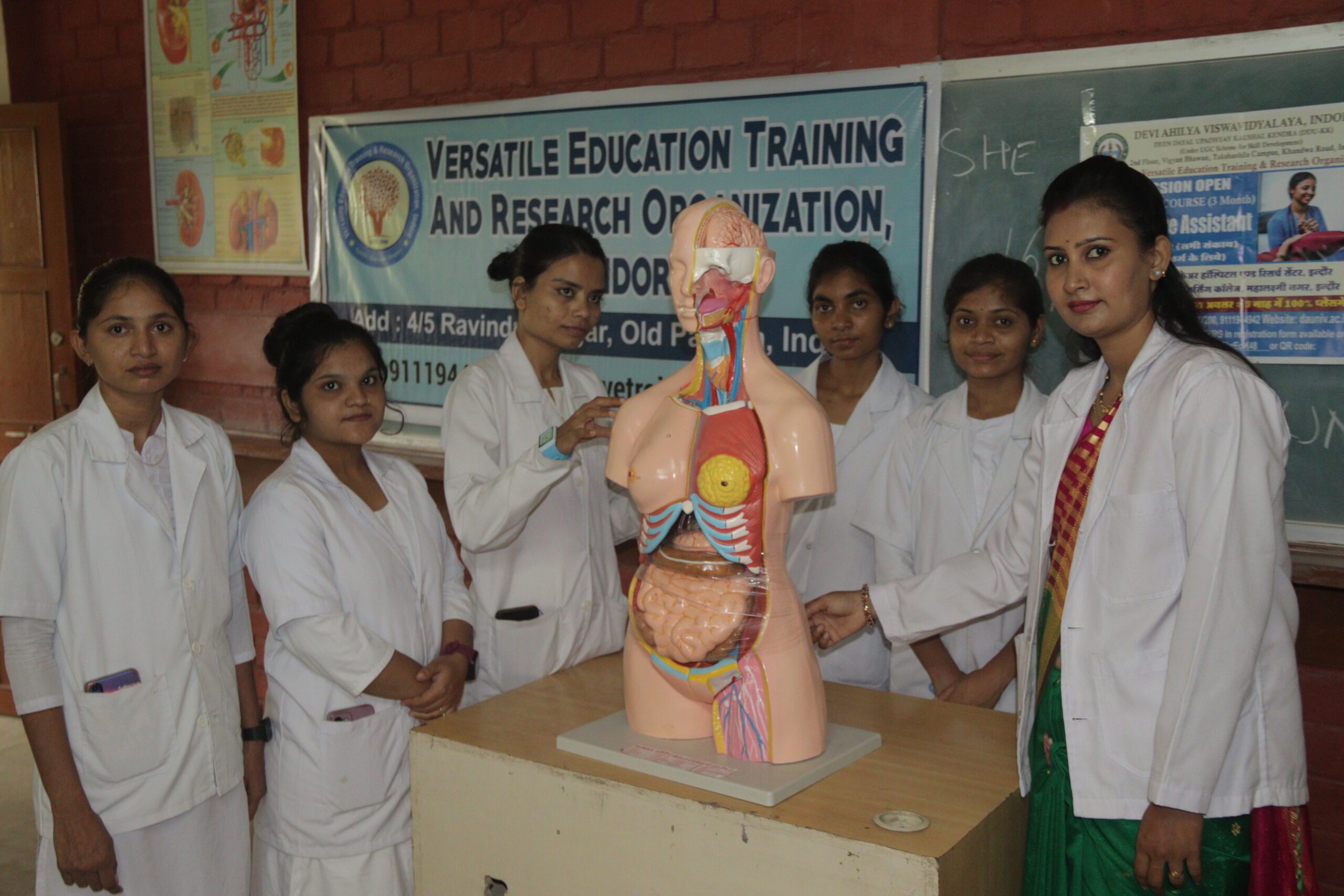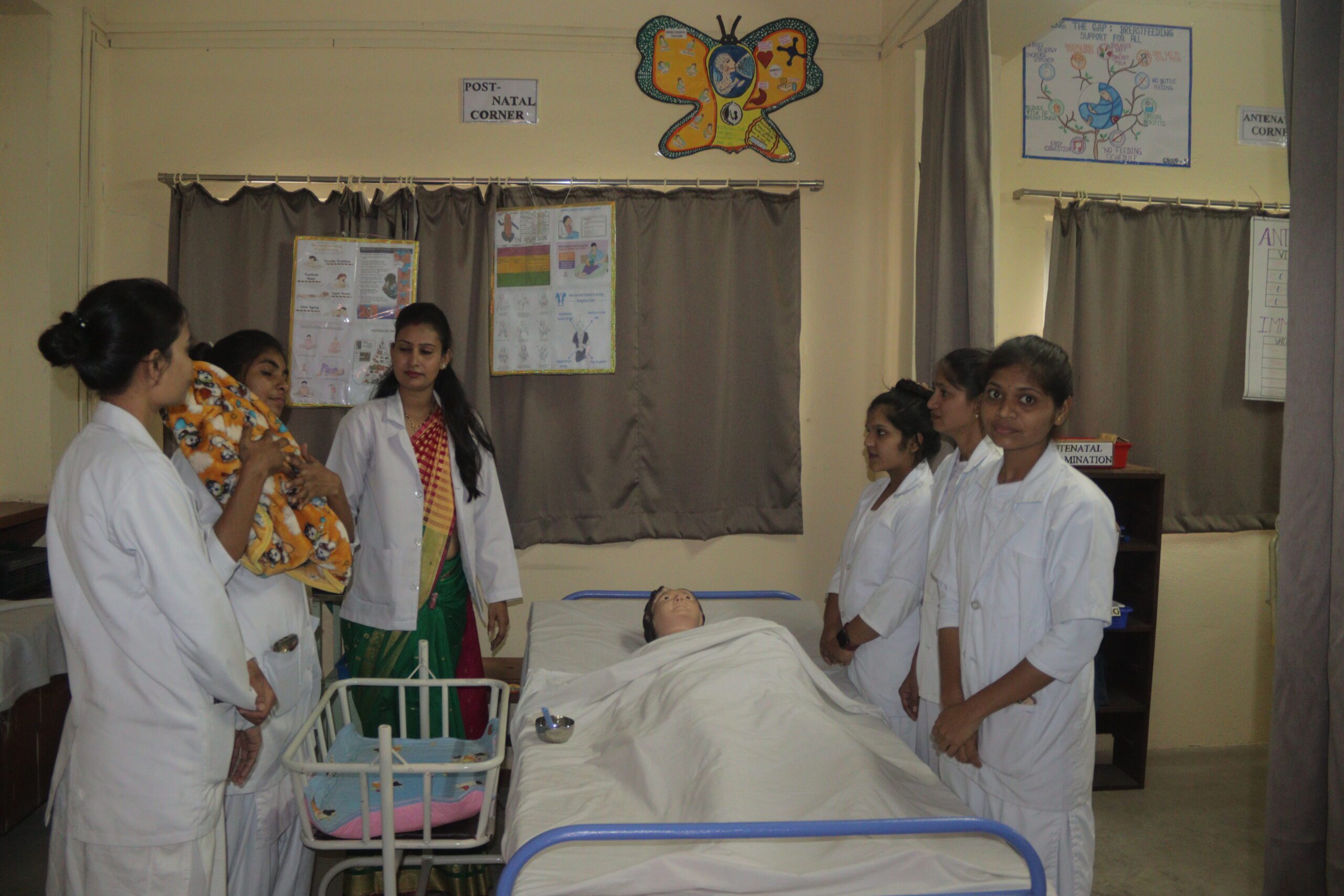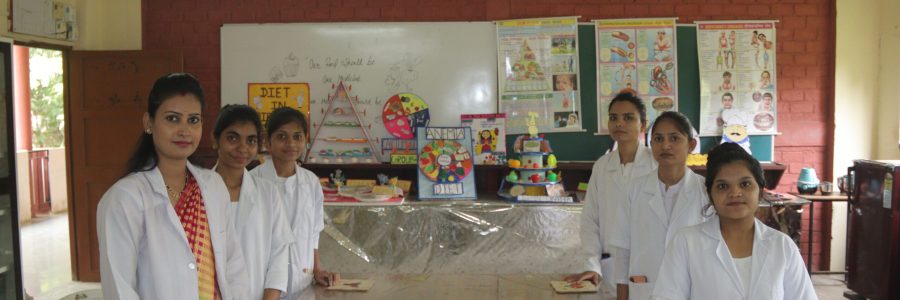Laboratories
At Medicare Nursing College, our nursing laboratories are designed to provide students with hands-on, practical experiences that complement their theoretical learning.
Equipped with state-of-the-art technology and resources, these labs simulate real-world healthcare environments, ensuring that our students are well-prepared for their clinical practice.
1. Nursing Foundation Laboratory
Overview
A foundational space where students learn and practice essential nursing skills.
Key Features:
- Simulation mannequins for practicing vital sign monitoring, injections, woundcare, and basic patient assessments.
- Equipment for basic life support (BLS) training.

Purpose:
To build confidence and competence in fundamental nursing skills before entering clinical settings.
2. Pre-Clinical Laboratory
Overview
A high-fidelity simulation lab that replicates real clinical environments.
Key Features:
- Advanced mannequins that simulate various medical conditions and responses.
- Control rooms where instructors can manipulate scenarios and observe student interactions.

Purpose:
To provide immersive, hands-on learning experiences that develop critical thinking and decision-making skills in high-pressure situations. To know about the anatomy and physiological changes of Human Body.
3. Paediatric Nursing Laboratory
Overview
A specialized lab focusing on the care of infants and children.
Key Features:
- Paediatric mannequins and equipment that mimic real-life paediatric scenarios.
- Simulated paediatric emergency situations, including respiratory distress and trauma.

Purpose:
To prepare students for the unique challenges of paediatric nursing through practical experience.
4. Maternal-Child Health Nursing
Overview
A lab dedicated to maternal and new-born care.
Key Features:
- Simulation models for childbirth and postpartum care.
- Breastfeeding and infant care training equipment.
Purpose:
To enhance students’ skills in maternal-child health, focusing on family-centred care practices.
5. Community Health Nursing Laboratory
Overview
A lab focused on public health practices and community wellness.
Key Features:
- Resources for health education and promotion activities.
- Simulations of community health assessments and interventions.
Purpose:
To prepare students for real-world community health initiatives and public health nursing.
6. Nutrition Laboratory
Overview
The Nutrition Laboratory offers hands-on experiences that blend theoretical knowledge with practical application. It serves as a dynamic learning environment where students can explore the complexities of nutrition and its impact on patient care.

Key Features:
- State-of-the-Art Facilities: The lab is equipped with modern kitchen appliances,food preparation tools, and nutritional assessment technology to support a wide range of learning activities.
- Interactive Learning Modules: Students engage in practical exercises that cover meal planning, dietary modifications, and the assessment of nutritional needs for diverse populations, including children, the elderly, and individuals with chronic illnesses.
- Nutritional Assessment Tools: Access to various tools for conducting nutritional assessments, including body composition analyzers, dietary recall software, and food databases.
- Cooking Demonstrations: The lab includes opportunities for students to participate in cooking demonstrations that emphasize healthy meal preparation techniques and dietary education.
- Research Resources: A collection of nutritional textbooks, journals, and online resources to support evidence-based learning and research in nutrition science.
Purpose:
Holistic Patient Care: By understanding the importance of nutrition, nursing students are better equipped to provide holistic care that addresses all aspects of patient health.
Skill Development: The lab fosters essential skills in nutritional assessment, meal planning, and patient education, which are vital for nursing practice.
Enhanced Critical Thinking: Hands-on experiences challenge students to think critically about dietary choices and their impact on health outcomes.
Preparation for Real-World Scenarios: Practical training in the Nutrition Laboratory prepares students to address the nutritional needs of patients effectively in clinical settings.
7. Computer Room
Overview
The Computer Laboratory is designed to support nursing students in mastering essential technology skills, accessing digital resources, and preparing for the increasingly tech-driven healthcare environment.
Key Features:
Modern Workstations: The lab is outfitted with high-performance computers, ergonomic seating, and collaborative workspaces to facilitate both individual and group projects.
Healthcare Software: Students gain hands-on experience with industry-standard software used in healthcare settings, including:
– Electronic Health Records (EHR) systems
– Medical billing and coding software
– Telehealth platforms
Online Learning Resources: The lab provides access to a wide range of e-books, databases, and academic journals essential for nursing research and study.
Printing and Scanning Services: Students can utilize printing and scanning facilities for their assignments, presentations, and clinical documentation.
Technical Support: On-site technical support is available to assist students with any software or hardware issues, ensuring a smooth learning experience.
We invite you to explore our state-of-the-art nursing laboratories and discover how they contribute to a comprehensive nursing education. At Medicare Nursing College, we are committed to preparing our students for success in their nursing careers.
